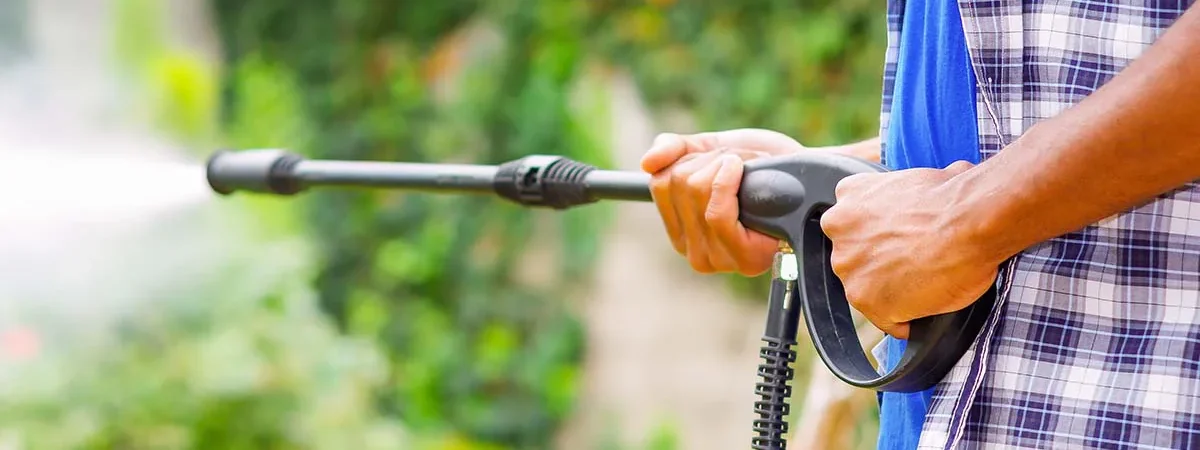When it comes to cleaning tough surfaces, removing stubborn grime, or maintaining the appearance of your home or business, few tools are as powerful and efficient as Pressure Washing Equipment. Whether you’re a homeowner tackling your driveway or a professional cleaning contractor servicing commercial properties, selecting the right pressure washing gear is essential to achieve effective and safe results.
In this comprehensive guide, we’ll walk you through everything you need to know to choose the best Pressure Washing Equipment for your needs—from understanding the different types of machines to evaluating PSI, GPM, nozzles, and accessories.
Understand the Basics: What Is Pressure Washing Equipment?
Pressure Washing Equipment refers to a system of tools and machines designed to spray water at high pressure, typically to clean surfaces like concrete, siding, vehicles, roofs, and more. The system usually includes a pressure washer (gas or electric), hoses, nozzles, wands, and sometimes surface cleaners or detergents.
There are two primary categories:
- Cold Water Pressure Washers – Great for general household cleaning tasks
- Hot Water Pressure Washers – More effective for grease and industrial grime, ideal for professionals
Know Your Needs: Residential vs. Commercial Use
Before buying any Pressure Washing Equipment, identify how you plan to use it:
Residential Use
- Occasional use (driveways, decks, siding)
- Lighter dirt and organic build-up
- Lower PSI models (up to 2,000 PSI)
- Electric units are usually sufficient
Commercial Use
- Frequent or daily use
- Heavy-duty cleaning (graffiti, oil stains, industrial surfaces)
- Higher PSI and GPM (3,000+ PSI / 3+ GPM)
- Gas-powered machines or custom pressure washer rigs
Consider PSI and GPM Ratings
Two of the most important specs in any Pressure Washing Equipment are:
- PSI (Pounds per Square Inch): Measures pressure. The higher the PSI, the more powerful the spray
- GPM (Gallons per Minute): Measures water flow. A higher GPM allows you to cover more surface area faster
For example:
- Light-duty tasks: ~1,300–2,000 PSI / 1.2–1.5 GPM
- Medium-duty tasks: ~2,000–3,000 PSI / 2.0–2.5 GPM
- Heavy-duty tasks: 3,000+ PSI / 3+ GPM
Choose Pressure Washing Equipment that matches your cleaning demands without overkill—too much pressure can damage surfaces.
Select the Right Nozzles and Attachments
Different cleaning tasks require different spray angles. Most Pressure Washing Equipment includes interchangeable nozzles coded by color:
- Red (0°): Very concentrated, not for soft surfaces
- Yellow (15°): Heavy-duty cleaning (concrete, bricks)
- Green (25°): General cleaning (vehicles, decks)
- White (40°): Light-duty and delicate surfaces
- Black (65°): Low-pressure detergent application
Other useful attachments include:
- Surface cleaners
- Telescopic wands
- Hose reels
- Detergent injectors
- Turbo nozzles
These can drastically improve the performance and versatility of your Pressure Washing Equipment.
Gas vs. Electric Pressure Washers
Electric Pressure Washing Equipment:
- Quieter and lighter
- Lower maintenance
- Best for indoor or light outdoor use
Gas Pressure Washing Equipment:
- More powerful and portable
- Suitable for heavy-duty and commercial jobs
- Requires more maintenance and ventilation
If you’re planning professional or frequent cleaning work, gas-powered units or even custom-built setups may be the better option.
Consider Custom Builds for Professional Needs
For professionals or businesses that require maximum efficiency and performance, a custom-built pressure washing system can be a game-changer.
Platforms like JRacenstein’s Custom Builds by ProTool offer tailored solutions that combine water tanks, hose reels, engines, and pumps on a single mobile rig. These units are designed for window cleaners, power washing companies, and mobile detailers who need equipment they can rely on every day.
Custom rigs often include:
- Hot and cold water options
- Skid-mounted systems
- Tank-fed or direct-connect setups
- Built-in detergent delivery
- High GPM and PSI capabilities
Safety and Maintenance Tips
Even the best Pressure Washing Equipment is only as effective as its operator. Follow these tips to ensure longevity and safe use:
- Wear eye protection and gloves
- Never point the nozzle at people or animals
- Avoid using high PSI on soft or painted surfaces
- Flush detergent tanks after use
- Store hoses and nozzles properly
- Perform regular maintenance on engines and pumps
The Right Pressure Washing Equipment Saves Time and Delivers Results
Choosing the right Pressure Washing Equipment depends on your specific cleaning needs, frequency of use, and budget. Whether you’re cleaning your patio once a month or running a power washing business, investing in the right tools makes all the difference.
From PSI and GPM ratings to nozzle types and custom builds, understanding your options will help you select equipment that’s powerful, efficient, and long-lasting.
For professionals seeking high-performance solutions, consider exploring custom pressure washing systems like those from JRacenstein and ProTool. These tailored setups are built to meet the rigorous demands of real-world cleaning.


